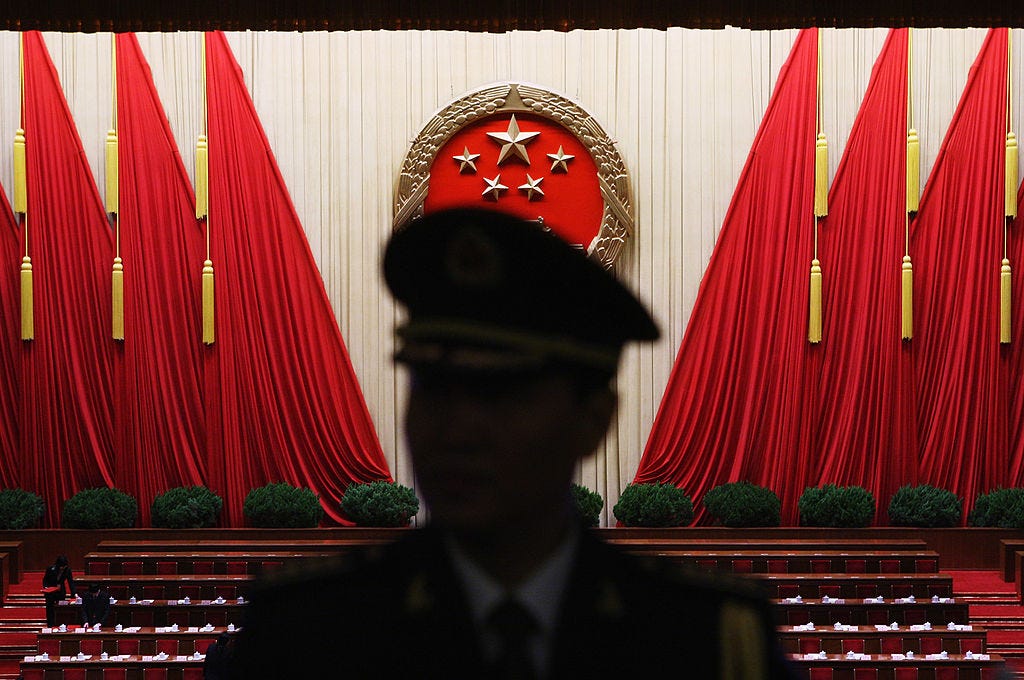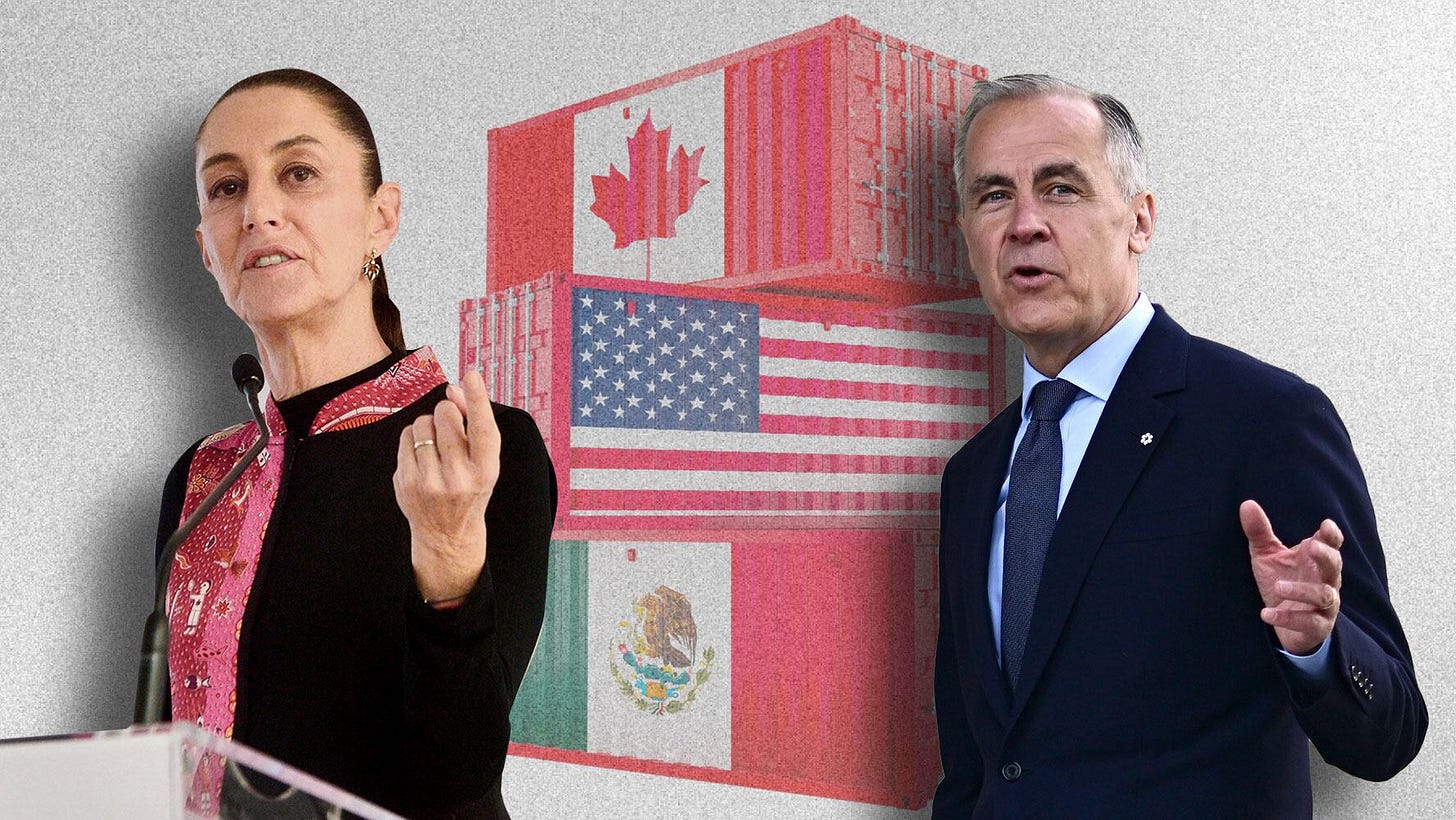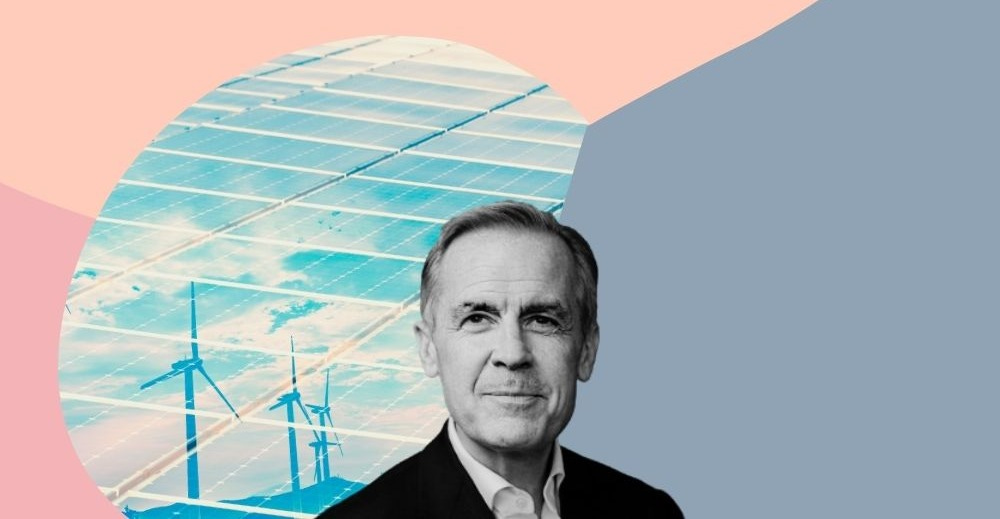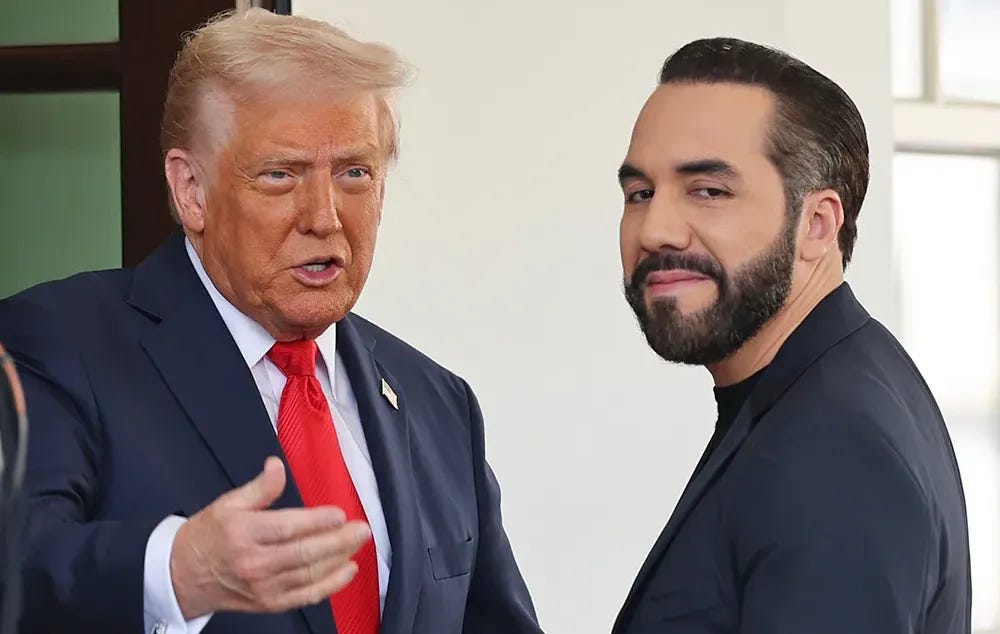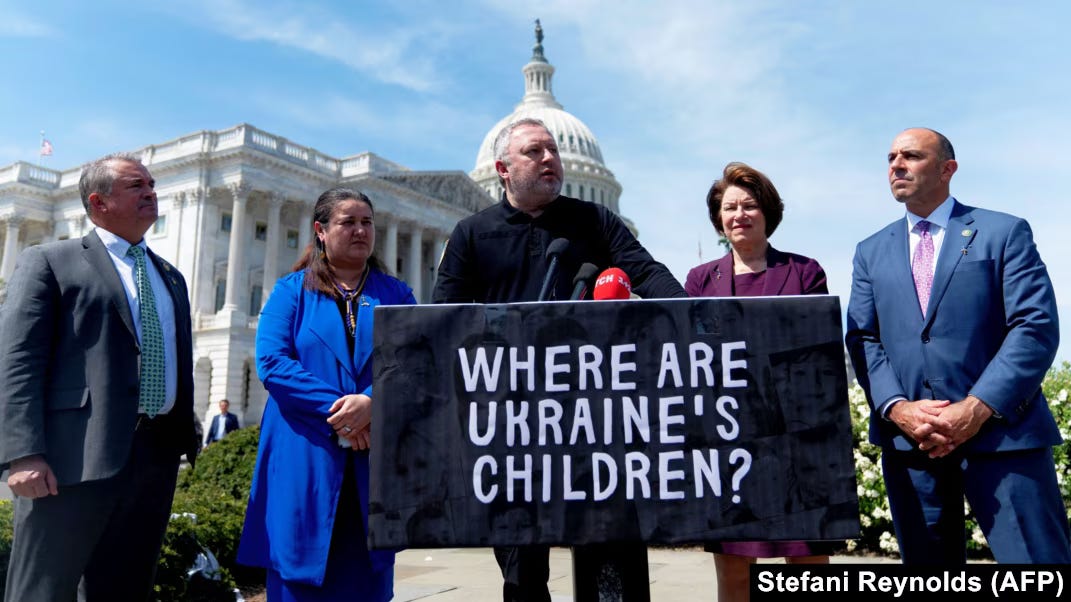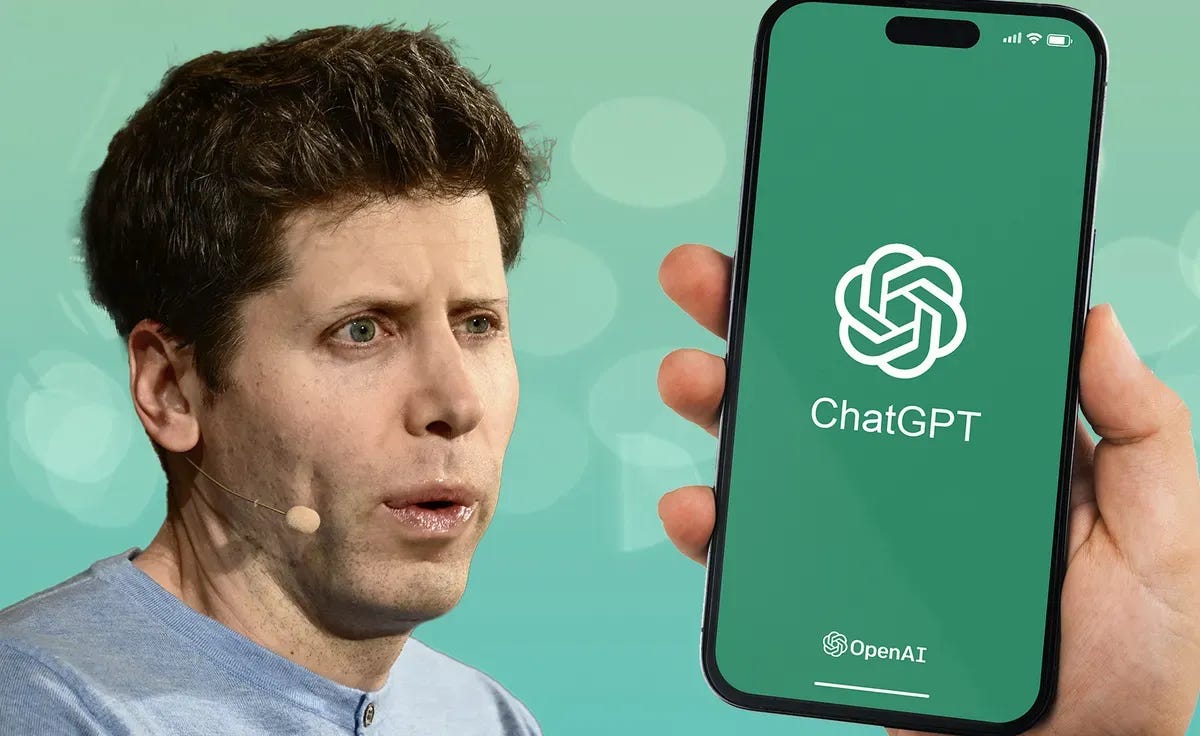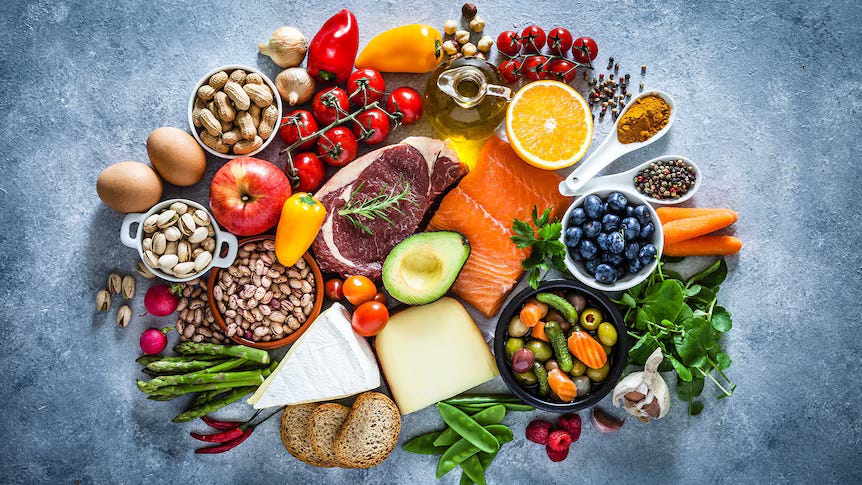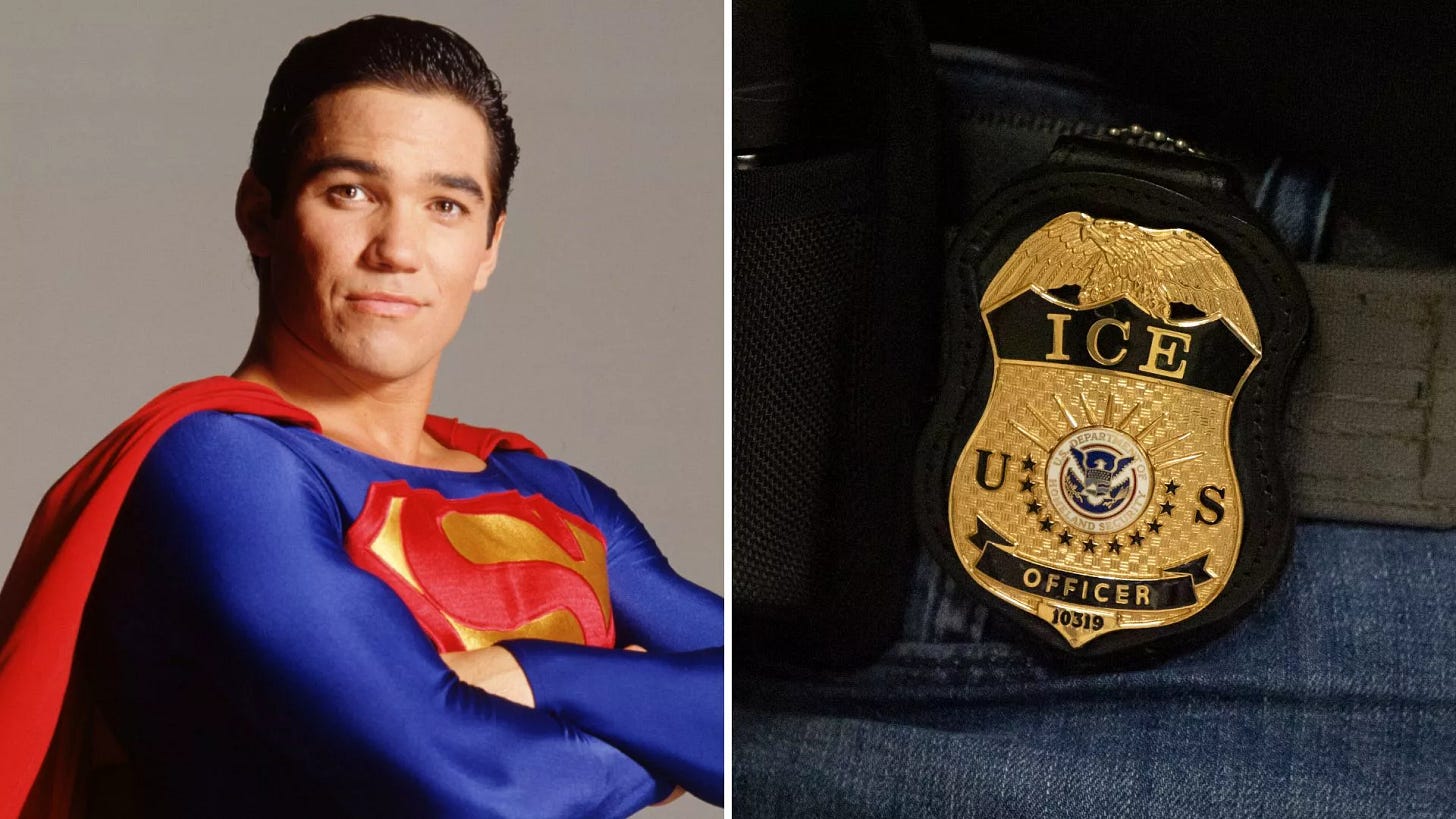Good morning, it’s Friday, August 8th. In today’s news, China’s total war strategy targets the West with drugs, viruses and cognitive warfare, Mexico shuts down Canada—showing no interest in a bilateral trade deal, Five auto CEOs warned Carney that EV mandates will cost jobs and raise prices, El Salvador abolishes term limits with Trump’s support, and much more.
First time reading the daily blend? Sign up here.
The CCP’s Silent War: Fentanyl, Viruses, and the Collapse from Within
The next great war may not begin with missiles or invasions, but with overdoses, pandemics, and manipulated information streams.
According to Sam Cooper’s analysis of the new findings in China’s Total War Strategy: Next-Generation Weapons of Mass Destruction, the United States, Canada, and other Five Eyes nations are not facing isolated criminal threats—but a coordinated assault by a hostile state using non-traditional weapons. The book, written by national security and military intelligence veterans, lays out a chilling thesis: that the Chinese Communist Party (CCP) is waging a covert war through synthetic opioids, cognitive warfare, and an expanding bioweapons program.
Fentanyl, which killed over 75,000 Americans in 2022, is not just a product of criminal negligence, they argue—it’s a strategic weapon. The authors allege that China’s state-backed chemical networks and export infrastructure are deliberately fuelling opioid production by Mexican cartels as a form of biochemical sabotage. The logic? Fentanyl doesn’t create a sustainable market—it annihilates it. It kills users so quickly and unpredictably that it undermines the very society it infiltrates.
This isn’t just cartel activity. It’s hybrid warfare—where state actors use criminal networks, digital platforms, and bioengineering as extensions of policy.
The book also warns that COVID-19 was more than a pandemic—it was a proof of concept. While they acknowledge the virus likely originated from an accidental leak at the Wuhan Institute of Virology, the authors argue that the CCP quickly adapted, monitoring global response patterns to map vulnerabilities. They claim China has since expanded its clandestine biological weapons program—embedding it within civilian labs, military facilities, and even foreign research partnerships. The threat is no longer just coronaviruses: research into far deadlier pathogens like Nipah virus and African swine fever is underway, with delivery systems being developed through nanotechnology and gene targeting platforms.
Taken together, the fentanyl crisis and the COVID-19 pandemic are framed as early chapters in a broader doctrine of total war—one that doesn’t wait for tanks and planes, but erodes public health, economic stability, and social trust from within.
If even part of this thesis is accurate, we are already years into a new kind of war—and most of our leaders still refuse to name the enemy. Source.
Mexico Shuts Down Canada: We Have No Interest in a Bilateral Trade Deal
Mexico just sent a message loud and clear: it doesn’t need a separate trade deal with Canada. President Claudia Sheinbaum shut the door on the idea, stating there’s “no need” for a bilateral agreement and pointing to the existing U.S.-Mexico-Canada Agreement (USMCA) as more than sufficient. Diplomatic translation? Canada is the side piece in this relationship.
The latest tariff decisions only underscore that reality. While President Trump handed Mexico a 90-day reprieve from increased tariffs, Canada got slammed with a 35% hike on goods not covered by the USMCA—up from 25%. It’s a clear signal about who Washington also sees as a priority.
US Ambassador to Canada Pete Hoekstra didn’t mince words. Canada’s confrontational negotiating style, retaliatory tariffs—one of only two countries to strike back at the US—and political chest-thumping have backfired. Mexico played it smart. Canada simply misread the room and paid the price.
Canadian ministers François-Philippe Champagne and Anita Anand travelled to Mexico this week for meetings billed as “productive.” Yet, the only concrete outcome was, ‘thanks, but no thanks.’ No new deals, no strategic breakthroughs, only vague commitments to future collaboration in energy, automotive, supply chains, and digital infrastructure. Even the promised visit by Prime Minister Mark Carney remains without a confirmed date.
This is what a decade of economic stagnation and diplomatic drift under Liberal rule looks like. Ottawa can scramble to “diversify trade” all it wants, but the truth is plain: Mexico has made its choice—and it’s not Canada.
Five Auto CEOs Warned Carney: EV Mandate Will Cost Jobs, Raise Prices
Just two weeks after Mark Carney’s Liberal government was sworn in, the CEOs of Canada’s five largest automakers issued a rare, direct warning: repeal the federal zero-emission vehicle (ZEV) sales mandate—or risk inflicting “serious damage” across the entire auto industry.
The May 26 letter, signed by the heads of Ford, GM, Honda, Stellantis, and Toyota, was blunt. The targets were “unrealistic and unattainable,” consumer demand was dropping, infrastructure was lacking, and affordability remained a major barrier. If Ottawa doesn’t back down, the CEOs warned, it will mean fewer jobs, higher prices, and reduced consumer choice for Canadians.
So far, the Carney government has offered no public response.
The mandate, introduced in 2023, requires 20% of all new vehicle sales to be zero-emission by 2026—ramping up to 60% by 2030, and 100% by 2035. But with EV sales already plummeting to just 6.5% of total vehicle sales earlier this year, and incentive programs being scrapped or scaled back, industry insiders say there's simply no path forward to meet the 2026 target.
To avoid penalties, automakers will be forced to either restrict internal combustion and hybrid vehicle sales or purchase regulatory credits from companies like Tesla—who don’t even manufacture vehicles in Canada. That means Canadian consumers get fewer options, while foreign companies get a windfall.
Even more troubling is the economic fallout. Canada’s auto sector supports hundreds of thousands of jobs. Limiting sales, cutting production, or forcing layoffs in the middle of a fragile economic recovery—just to meet arbitrary emissions targets—amounts to economic vandalism.
The automakers aren’t against electrification. They’ve collectively invested tens of billions into EV development and production. But they’re warning that regulation alone won’t solve the problem—especially in the absence of a realistic transition plan, charging infrastructure, or sustained consumer demand.
This is what happens when ideology replaces economics. Carney’s government is barreling ahead with a policy that industry leaders—those most responsible for delivering the vehicles—say is unworkable. And despite private meetings and growing concern, Ottawa remains silent.
There’s still time to course-correct. But unless the mandate is repealed, the federal government won’t just miss its climate targets—it will crush one of Canada’s most important industries in the process. Source.
El Salvador Abolishes Term Limits—The US Approves
El Salvador has eliminated presidential term limits, allowing President Nayib Bukele to run indefinitely. The move—pushed through swiftly by Bukele’s ruling party—sparked international backlash, with critics calling it a death blow to Salvadoran democracy. But in Washington, surprisingly, it has been met with approval.
Marking a sharp reversal of past US policy, the State Department backed the amendment, stating it’s up to El Salvador to decide how it governs itself. President Trump and Secretary of State Marco Rubio have both praised Bukele for his hardline crackdown on gangs and historic reductions in crime.
Bukele, who remains wildly popular at home, defended the change on social media: “90% of developed countries allow indefinite re-election,” he wrote. “When a small, poor country like El Salvador tries the same, suddenly it’s the end of democracy.” More
Ukraine Intelligence: Russia Creates Online ‘Catalogue’ of Abducted Ukrainian Children for Adoption
Ukrainian intelligence reports that Russian occupation authorities in Luhansk have created an online “catalogue” listing 294 Ukrainian children offered for adoption, sorted by physical traits like eye and hair colour. The head of the Ukrainian NGO Save Ukraine condemned it as child trafficking, noting many children were born before the occupation and had Ukrainian citizenship.
Ukraine estimates that over 19,500 children have been abducted by Russia during the war, with the real number possibly as high as 200,000–300,000. The Russian-run database describes these children as “orphans” and allows filtering by age, appearance, and guardianship type. International bodies have condemned the abductions as war crimes, with the ICC issuing arrest warrants for Putin and a Russian official over their roles in the forced transfers. More
Poilievre Challenges Carney to Get 'Shovels in the Ground' on Two Pipelines by Next March - Carney's commitment to fast-tracking approvals for major projects is a signature pledge he made to boost Canada's economy. More
Cambodia Nominates Trump for Nobel Prize After Thai Border Truce - It’s also worth he sharply reduced their tariffs before the nomination. More
Active-Duty US Army Soldier Charged With Leaking Military Secrets to Russia - More
Israel Plans Full Military Control of Gaza, Netanyahu Says - ‘We want to liberate ourselves and liberate the people of Gaza from the awful terror of Hamas,’ he said. More
France Struggling to Contain Its Largest Wildfire in 75 Years as Blaze Rages Across Thousands of Hectares - More
Sudanese Military Destroyed a UAE Plane Carrying 40+ Colombian Mercenaries - More
OpenAI Launches ChatGPT-5
OpenAI has launched GPT-5, its newest language model, to all ChatGPT users. CEO Sam Altman called it “a significant step toward AGI” but said it still lacks some key abilities like continuous learning. GPT-5 is smarter, faster, and more accurate with fewer hallucinations than earlier versions, and Altman compared the upgrade to the iPhone’s jump to Retina displays.
OpenAI introduced two smaller variants, GPT-5-mini and GPT-5-nano, offering faster and cheaper options, especially for developers. Free users get access to GPT-5 and mini; Plus and Pro tiers get higher usage limits and exclusive versions like GPT-5-pro and GPT-5-thinking, which process queries longer.
Additional features include new chat personalities, integration with Google apps for Pro users, and better safety controls to limit harmful outputs. With nearly 700 million weekly active ChatGPT users, OpenAI aims to make GPT-5 feel like interacting with a PhD-level expert on any topic. More
China’s Baidu to Deploy Its Self-Driving Taxis Globally Through Deals With Lyft, Uber - Experts warn of the security risks with the overseas deployment of the China-made electric robotaxis. More
Trump Calls for Intel CEO to Resign Amid Concerns Over China Ties - The president’s demand follows a national security warning linking the Intel CEO to the Chinese military. More
Toyota Says It’s Facing $9.5 Billion Tariff Hit, Cuts Profit Guidance - More
Study: Eat More, Weigh Less—Whole Foods Are the Real Weight Loss Hack
The long-heated debate is finally settled: a new UCL clinical trial proves that eating minimally processed foods leads to nearly twice the weight loss compared to ultra-processed foods, even when both diets are matched for calories and macronutrients like fat, protein, and carbs. Participants on the minimally processed diet lost significantly more fat and experienced better appetite control, suggesting that food processing itself—not just calories or macros—plays a crucial role in weight management. Researchers say this highlights the need for policies that promote whole, fresh foods over ultra-processed options to support healthier bodies and lasting weight loss. More
Chinese Researchers Develop Innovative Self-Cleaning Glass - According to a study published last month in the Advanced Science journal, the new glass can effectively remove 98% of both organic and inorganic particles without any manual intervention. More
Former Superman Actor Dean Cain is Joining ICE to 'Help Save America'
Dean Cain, best known for playing Superman in the 1990s TV series Lois & Clark, is officially joining US Immigration and Customs Enforcement (ICE) under President Trump’s new immigration enforcement push. Cain says he’s stepping in as a “patriotic duty,” citing the country’s broken immigration system, rising border crime, and the need to support frontline law enforcement. His move has sparked backlash online, with critics accusing him of betraying the Superman legacy, but Cain remains unapologetic, insisting real heroism is about protecting American families—not chasing social media approval. More
A Star is Born: Canadian Teen Mboko Outlasts Osaka to Win National Bank Open Title - More
New Judging Criteria Approved for MMA's Unified Rules - The new rules place a heavy emphasis on damage — one of "the three D's" critical to scoring. Per the new guidelines, damage "is the most highly valued component in judging a round because it is not an action but rather a direct result of effective fighting." More
Scottie Scheffler's 'Happy Gilmore 2' Cameo Prompts FedEx Cup to Pop Up ‘Scottie’s Chicken Shack’ - More
“Magic” Cleaning Sponges Found to Release Trillions of Microplastic Fibers
A Chinese Man Was Scammed Into Buying a 300 Year of Gym Membership for $121,000
On This Day In 1786, the US Congress unanimously adopted the dollar as the official currency of the United States.






